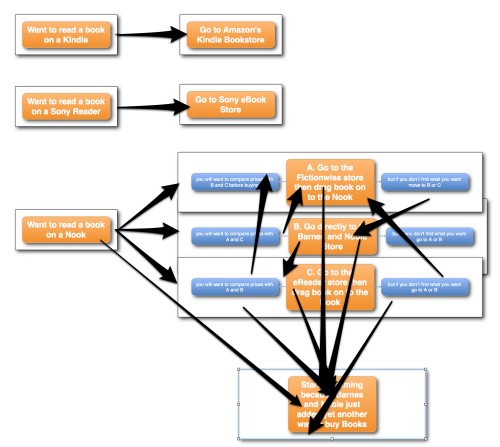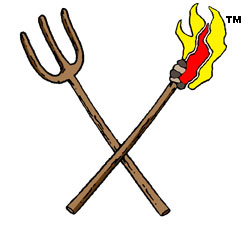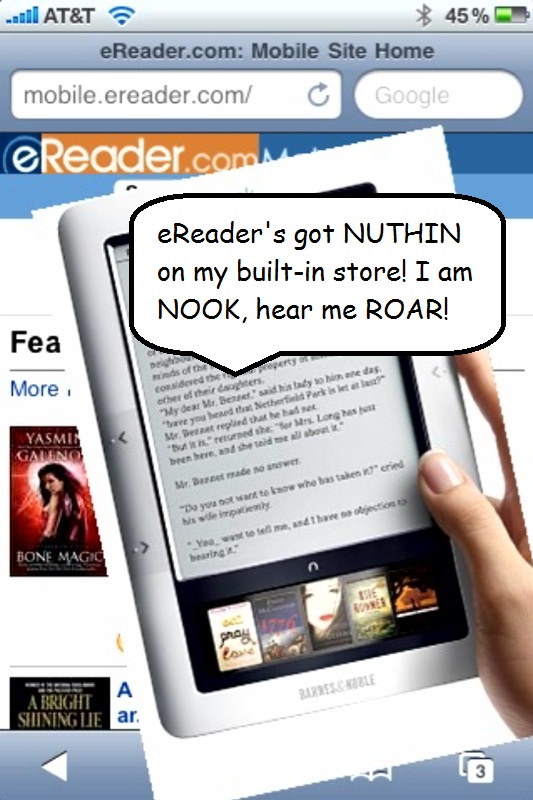
(image courtesy fromoldbooks)
Welcome to another State of the eBook!
To start off, the big news this week was publishers plotting to make eBooks second-class citizens by delaying their release. You can read all about it here. It isn’t pretty and it is time to let publishers know how we feel!
 (map courtesy of Dan, to whom this article owes a lot!)
(map courtesy of Dan, to whom this article owes a lot!)
While the publishers play the release date game, the “big 3″ eBook stores are playing the name game, some far better than others.
Sony is rebranding their eBookstore the ‘Sony Reader Store”, effective this Friday.
Meanwhile, “kindle book” is instantly recognized as an Amazon eBook.
Barnes and Noble, on the other hand, is taking their already thin eBook branding (nook, Fictionwise, eReader) and stretching it even thinner by teaming up with FoxIt for an eSlick eBook Store.
Of these three companies, Barnes and Noble already faces a huge challenge in pleasing the fiercely loyal eReader/Fictionwise legacy fans. Keeping eReader/Fictionwise as separate stores, and now adding ANOTHER eBook store into the mix is not going to help them strengthen their position or brand name. That consolidation process may be tricky, but bringing everything under the Barnes and Noble/nook brand name makes more sense and offers more benefits for B&N and consumers alike.
How so? Three major areas…
Branding
eReader/Fictionwise may have long roots in the PDA community, but nook has captured mindshare in a way its predecessors did not. Part of the problem, in my view, is that “ereader” is becoming a generic term (think Kleenex, Rollerblades, etc). Google “eReader” and after you get past the first hits to the eReader website, you get ads and links for various eBook readers, articles about e-readers, etc. The brand doesn’t stand out, and many people probably don’t even notice the tiny “a Barnes and Noble company” at the bottom of the eReader website. Fictionwise, by virtue of its more unique name, doesn’t suffer the generic issue, but more on Fictionwise in the next section.
“nook“, on the other hand, returns an entire page of articles about Barnes and Noble (with the exception of one link about cooking supplies). Look at Amazon’s strategy with the Kindle: their eBooks are ALL branded Kindle Books, making it very easy to immediately know a “kindle book” is an eBook bought from or compatible with Amazon. B&N needs that same immediate association across all their eBook lines, whether through dedicated eBook readers or their smartphone and PC software.
Website vs Website
If I go to eReader.com or Fictionwise.com and can’t find a book in digital form, I might just give up and wander off. If I go to nook.com (which redirects me to B&N’s site), and they don’t have a book in digital form, there’s an opportunity to keep the sale.
Beyond that, eReader and Fictionwise maintain a wildly different pricing structure than Barnes & Noble’s website. Same company; completely different pricing…why? New consumers are being driven to Barnes & Noble’s site through the nook; presumably, as more compatible eBook readers (like the Plastic Logic Que), come out for the nook store those levels will only increase. Simultaneously, Barnes & Noble are also pumping out versions of their eBook software for various smartphones and macs/pcs. So where is the business case for eReader/Fictionwise? Their membership program is convoluted, and only makes sense if a) your only source of eBooks is eReader/Fictionwise and b) you spend approximately $250/year on eBooks (assuming that you average a 10% discount on the books for being a club member). And if you think this is confusing, try comparison shopping between all three (soon to be four!) of Barnes and Noble’s stores.
Similar issues exist in the standalone and smartphone apps, as the Barnes and Noble versions are more full-featured than the eReader ones! No area of eBooks is safe from the confusion in nook-ville!
Format Wars
Rumors have swirled that Barnes & Noble may move to ePub in the future. eReader and Fictionwise (and the current B&N eBook store) use PDB format. If nothing changes, then in addition to maintaining three distinct, branded websites, B&N will also be maintaining two separate formats. At that point, will eReader and Fictionwise be fully supported and relevant? Remember, at that point, a Barnes and Noble branded eBook reader will most likely be available on every major platform, and would presumably also benefit from any ePub upgrades.
If eReader/Fictionwise were brought into the nook fold, then it would be simpler to convert all books, legacy and new ones, to ePub. Even if Barnes and Noble maintained the legacy PDB format, at least they could bring people under one “roof”, so to speak, to find these books, again, bringing people back to the website.

(image courtesy pitchforkandtorch)
I realize that eReader and Fictionwise have a lot of fans, and that this may not be a popular point of view. If you disagree with me, please share in the comments!
